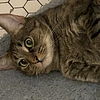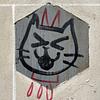You need to sign in or sign up before continuing.
Take a photo of a barcode or cover
I should have read the description more closely before purchasing, but very little of the book has to do with fiction writing.
Good book. Change this to awesome book. I absolutely loved this book and I would definitely recommend it to anyone who is any kind of a writer. It is so helpful and so inspiring.
I picked this book up as a free Kindle offering a week ago. I'm very glad I did.
Past the introduction, which (probably quite rightly) is a diatribe against the cost of an MFA program in a traditional school, the book is five chapters from five writers describing the craft of writing a genre. The first chapter on writing fiction (followed by personal essay and memoir; magazine writing; poetry; playwriting). The fiction chapter was quite thorough if mechanical, but a no-nonsense approach that will make an excellent resource for underway writers. The chapters also contain reading lists, pointers to other writing books, and other excellent resources.
Very nice work on the mechanical side of writing.
Past the introduction, which (probably quite rightly) is a diatribe against the cost of an MFA program in a traditional school, the book is five chapters from five writers describing the craft of writing a genre. The first chapter on writing fiction (followed by personal essay and memoir; magazine writing; poetry; playwriting). The fiction chapter was quite thorough if mechanical, but a no-nonsense approach that will make an excellent resource for underway writers. The chapters also contain reading lists, pointers to other writing books, and other excellent resources.
Very nice work on the mechanical side of writing.
Personal rating: 2 stars. Rating for inexperience writers or those who need more inspiration to take the craft more seriously: 3.5 stars.
Major takeaway: "'Don't get it right, get it written,'" according to an instructor of one of the authors.
Masters in Fine Arts always seems to be the degree you want to pursue but forego because you can't guarantee the expense is worth it. Sometimes writing classes are a lot of fun, you build your technique, and you connect with other writers. Other times the classes elicit regret because you could've accomplished more on your own time and you wouldn't be out $1,000. Is a masters program any different?
The Portable MFA in Creative Writing addresses this immediately. The MFA-holding authors instruct community workshops and see the differences everyday between what they paid for and what their students pay for. My favorite quote, or rather, a quote of a quote, "'Take the $35,000-$50,000 you're going to spend on the degree, buy yourself a good laptop and printer and a bundle of paper, and go off to a cabin and write. At the end of two years, the worst that can happen is you have nothing. Less than nothing is what you'll almost certainly have at the end of your MFA program, because, besides nothing, you'll also have a mountain of debt.'"
That quote says it all. The introduction elaborates on all the potential pitfalls of an MFA program. You pay for the prestige of the program, not necessarily the quality of the workshops and networking.
Each chapter was written by a different author: fiction, which is mostly about short stories; personal essay and memoir; magazine writing; poetry; and playwriting. I find this organization flavorful. It was like attending a real school with a different instructor for every course.
At this point in the book I was amused and impressed. The rest really comes down to the reader's personality and experience in writing.
I tend to mention this in books about writing. Certain people tend to be attracted to the literary and creative side of writing. They create a subculture fixated on exploring emotions and all the patterns in life that create different emotional dynamics. Then they write books on writing and assume a story is all about emotional exploration instead of it being an element of a story. I simply like to address these are personal preferences that have an audience, but they are by no means absolute to good writing.
Personality-wise I have a different approach to emotions and how they tie into the external world to the point that these books outright irritate me. I see value in this book and others for writers in general, even though my personal rating seems low.
The authors mention occasionally that MFA programs don't mean they attract experienced writers. Workshops almost assume you love the idea of writing but haven't come around to dedicating to it. Throughout the book the authors assume the reader is in the image of the typical Western citizen, too busy chasing kids, appeasing spouses, and earning money to consider dedicating to something as inconsequential to immediate needs as writing--here, beginners are more than welcome.
Even though I ended up skimming many sections because I was familiar with the content and I didn't connect with the authors beyond the invigorating introduction, I believe this book would be a fun and educational resource for those who are the main audience: writers who have foregone the craft for so long--perhaps they're entire adulthood--and want to leap back into it.
Major takeaway: "'Don't get it right, get it written,'" according to an instructor of one of the authors.
Masters in Fine Arts always seems to be the degree you want to pursue but forego because you can't guarantee the expense is worth it. Sometimes writing classes are a lot of fun, you build your technique, and you connect with other writers. Other times the classes elicit regret because you could've accomplished more on your own time and you wouldn't be out $1,000. Is a masters program any different?
The Portable MFA in Creative Writing addresses this immediately. The MFA-holding authors instruct community workshops and see the differences everyday between what they paid for and what their students pay for. My favorite quote, or rather, a quote of a quote, "'Take the $35,000-$50,000 you're going to spend on the degree, buy yourself a good laptop and printer and a bundle of paper, and go off to a cabin and write. At the end of two years, the worst that can happen is you have nothing. Less than nothing is what you'll almost certainly have at the end of your MFA program, because, besides nothing, you'll also have a mountain of debt.'"
That quote says it all. The introduction elaborates on all the potential pitfalls of an MFA program. You pay for the prestige of the program, not necessarily the quality of the workshops and networking.
Each chapter was written by a different author: fiction, which is mostly about short stories; personal essay and memoir; magazine writing; poetry; and playwriting. I find this organization flavorful. It was like attending a real school with a different instructor for every course.
At this point in the book I was amused and impressed. The rest really comes down to the reader's personality and experience in writing.
I tend to mention this in books about writing. Certain people tend to be attracted to the literary and creative side of writing. They create a subculture fixated on exploring emotions and all the patterns in life that create different emotional dynamics. Then they write books on writing and assume a story is all about emotional exploration instead of it being an element of a story. I simply like to address these are personal preferences that have an audience, but they are by no means absolute to good writing.
Personality-wise I have a different approach to emotions and how they tie into the external world to the point that these books outright irritate me. I see value in this book and others for writers in general, even though my personal rating seems low.
The authors mention occasionally that MFA programs don't mean they attract experienced writers. Workshops almost assume you love the idea of writing but haven't come around to dedicating to it. Throughout the book the authors assume the reader is in the image of the typical Western citizen, too busy chasing kids, appeasing spouses, and earning money to consider dedicating to something as inconsequential to immediate needs as writing--here, beginners are more than welcome.
Even though I ended up skimming many sections because I was familiar with the content and I didn't connect with the authors beyond the invigorating introduction, I believe this book would be a fun and educational resource for those who are the main audience: writers who have foregone the craft for so long--perhaps they're entire adulthood--and want to leap back into it.
This book is both good and bad in a way, a solid 3 star thing. It has sections about all types of writing. Personally, I found fiction and magazine writing the it's interesting. It is written in a very anecdotal way which I enjoyed. Ur does get boring sometimes, and even though it is relatively short (at least per section) I skimmed through at least half of it, even in the interesting sections. It has some great tips that I didn't expect to find in an book about writing, but it's not in any way a reference. I guess it can be regarded as a collection of essays, enjoyable, but nothing too serious.



